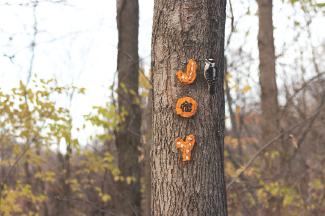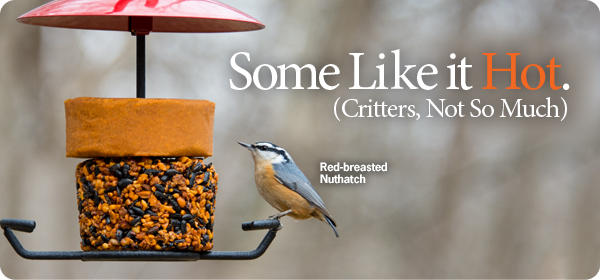
Birds love our exclusive seed cylinders and no-melt suet cylinders. But, so do many nimble, furry backyard inhabitants. If you are looking to feed just the birds without also feeding squirrels, our hot pepper products including Hot Pepper Cylinder (shown below) may be the problem solver for you.
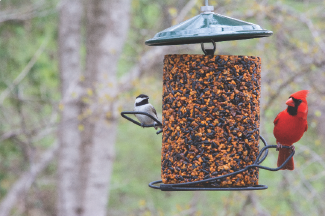
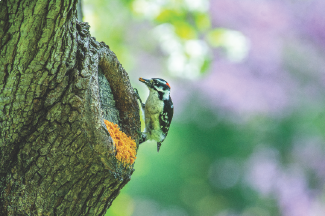
We've added some heat to our some other products too - Jim’s Birdacious® Bark Butter®, Bark Butter® Bits and QuickBites, Suet and now easy-to-pour Fiery Feast™. It's a hot pepper treated version of our most popular No-Mess blend and contains a mix of sunflower chips, chopped nuts and shelled peanuts, and is 100% edible. Fiery Feast™ is a no-mess way to feed the birds, while keeping the squirrels away. We're pretty sure they will still get enough to eat. :)
Pound for pound, our no-mess blends are the best value because you don't pay for uneaten seed waste. And with hot pepper included, you'll see the uninvited guests shy away... while feeding the birds you love to attract! Birds such as chickadees, woodpeckers and nuthatches readily eat foods containing hot pepper, unwelcome visitors not so much.
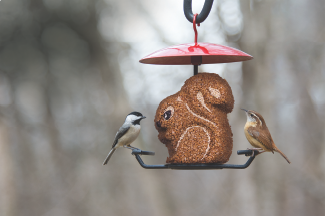
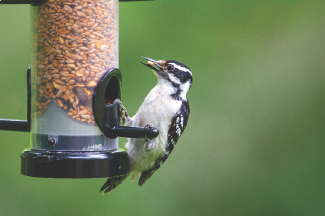
Impact on Birds and Mammals
Wild Birds Unlimited has been conducting reviews of relevant information and research about capsaicin’s impact on birds since 2005. For many years, the lack of credible information and the absence of long-term observational evidence kept WBU from bringing hot-pepper foods to market.
After an extensive review in 2014 (and repeated in 2018) of all available documentation, the conclusion was reached that the existing body of evidence and the historical track record of capsaicin treated bird foods revealed no valid indications of harm to birds utilizing these products.
If you are wondering how it works, hot peppers contain a compound called capsaicin, which comes in all levels of “heat.” Capsaicin is added to wild bird foods as a powder or oil, mainly to deter squirrels, raccoons, and other mammals. It is clear that many birds will eat bird food with hot pepper products on them and that squirrels will avoid it. You can expect more bird visits to the feeders because the squirrels spent less time there.
If you have questions about safety, capsaicin alone does not irritate or damage tissues in the mouth, eyes or digestive tract of birds. In fact, several species of birds and wild peppers have evolved a mutually beneficial relationship, in which the birds consume the pepper’s fruits and then go on to disperse the seeds. In mammals, capsaicin from hot pepper interacts with a specific receptor protein found on nerve endings, and evokes sensations of burning. While all mammals, including people, feel the heat response to hot peppers, there is no indication or evidence that the levels of capsaicin found in our products pose any health concerns for squirrels and other backyard critters. While this response is unpleasant, at low concentrations (such as in our products), capsaicin does not actually damage tissue.
Capsaicin-treated bird food has been on the market for over 15 years, and its anecdotal track record is remarkably unblemished. There are virtually no reports by ornithologists or hobbyists of the use of this food resulting in declines in feeder bird populations or causing the birds health problems.
Watch our video to see the full range of hot pepper products and ask us about how they can help you attract more beautiful birds to you backyard!
And see all our hot pepper products online at https://order.wbu.com/ottawa/bird-food/hot-pepper


